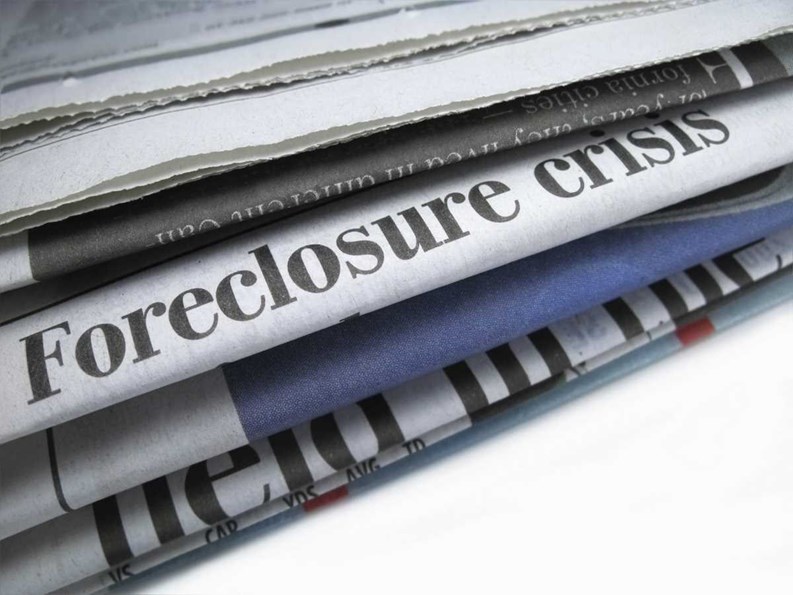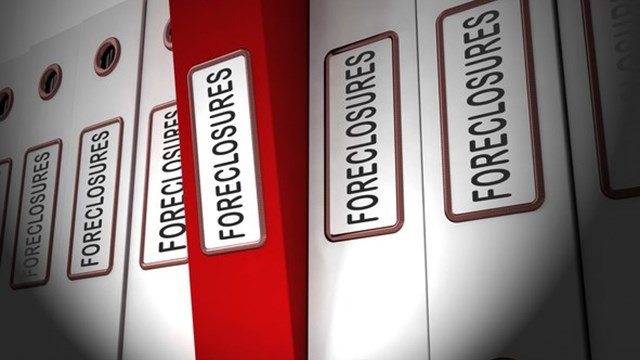The economy cratered—to use a term in popular parlance at that time—in September 2008, with the collapse of too-big-to-fail Lehman Brothers. While the measures undertaken by the federal government and the Federal Reserve averted complete financial meltdown—it never reached the point where we had to transport the necessary dollars to buy a loaf of bread in a wheelbarrow, as happened in Italy a few decades ago—the last few years have been a litany of ominous economic indicators.
Unemployment: in the double digits. Consumer confidence: an oxymoron. The Dow: mostly down. Property values: a fraction of what they were a few years ago. Foreclosures: way up. About the only positive is interest rates, which hover near all-time lows. Mix in the mounting deficit, the Moody’s downgrade of U.S. T-bills, and a nascent populist uprising centered on income inequality, and it’s not a boon time for anything to do with real estate in South Florida or elsewhere, for that matter.
Economists and real estate brokers alike seem convinced that 2012 will break no differently than 2011. When the good times return, they will do so slowly. How does the bleak economic outlook affect the property management industry, in Florida and across the U.S.? Let’s take a look:
Slow & Steady
Like the rest of the economy, the property management industry remains sluggish.
“Our industry is not growing,” says Tara Miller, sales and marketing manager with First Choice Property Management in Boca Raton. “The economy took a nosedive. New buildings stopped being built. We don’t have new communities to target. There are 500 communities in Palm Beach County, and 200 management companies vying for the same communities. It doesn’t mean we’re not taking on new clients, just not as many as I’d like.”
That ratio can be good for the properties, as we’ll explain shortly, but grim for the health of the industry. And the lack of new communities is only part of the problem—the extant ones are also hurting.
“We’re still seeing foreclosures,” says Lori Burger, senior vice president of both the Institute of Real Estate Management (IREM) and the Eugene Burger Management Corporation, AMO. While governments—state and federal—and some of the banks themselves, have worked to stem the flood of foreclosures, they still happen, and they don’t seem to be slowing down. “Foreclosures were higher in 2010 than the year before. I don’t see them changing in 2011 or 2012.”
According to RealtyTrac, a nationwide information service that tracks real estate foreclosure filings, Florida is fourth in the country in number of foreclosure actions filed with 161,580 properties in some state of distress—(notice of default, lis pendens, auctioned, sold in foreclosure or foreclosed and owned by the bank). Nevada is first.
In South Florida, there are a high percentage of condos that are second homes, vacation homes, and investment properties, and many of those are also in default. This makes it easier for owners to sever ties, if all hope of breaking even is lost.
“The problem here is, the value’s not there in the units,” Burger says. Owners who bought at the peak of the real estate boom now owe more—in some cases, much more—than what their unit is worth in 2012 dollars. They can’t sell them for enough to make back their initial investment, Burger says, so they walk away. Owners are more likely to stop putting money into the bad investment, just as they would, after a time, sell a stock at a loss. “It just doesn’t make sense to hold onto them.”
Devastating enough in a neighborhood of detached single-family dwellings with white picket fences out front, foreclosures impact HOAs even more. Unlike a dumped stock, this has an adverse impact on each of the other owners in the HOA. “When units go to foreclosure, those uncollected assessments have to come from somewhere,” Burger says. “They’re sitting on uncollected debt.”
Not every delinquent owner is an investor, however. All the owners work in the business world, and many businesses aren’t doing well, Burger says. “I know some very affluent people, individuals who have served on boards—they’ve lost their homes.”
More ominously, the retail market is hurting as well. Longtime anchor stores in some neighborhoods—supermarkets, Borders bookstores—have shuttered their doors. “Major retailers, well established commercial retailers, are going belly up,” Burger says. “It’s really frightening. The commercial retailers can’t refinance, so they go out of business.” This removes hundreds of jobs from the area. “It’s a trickle-down effect.”
Affecting Managers, Too
The bleak economy has also affected how property managers do business.
For one thing, boards, not the most liberal bunch to begin with—with respect to spending money, have become even more conservative. “Everybody’s concerned about the financials. Co-ops and condos are corporations,” says Enid Hamelin, director of marketing at a New York management firm and a longtime board member at her own co-op. “They’re businesses. With the assistance of the board, the job of the management company is to keep all ships afloat.”
Planning a budget is tricky these days, she says. “You have to do it with the understanding that there may be people in the building with financial troubles themselves. You can’t really raise assessments or maintenance because it might be a hardship to residents.”
Burger agrees. “HOAs are being conservative in their budgets,” she says. “They’re being skeptical; they’re scrutinizing line items in the budget. They’re trying not to have increases. They’re reluctant to spend cash reserves on capital improvements, if they can be postponed to a later date.”
In the past, Burger says, when assessments were needed, unit owners would refinance their mortgages to cover the cash outlay. In the post-Lehman Brothers economy, this is no longer possible. “Any type of special assessment project is looked at very carefully. HOAs are phasing projects over time, so owners don’t have to pay the special assessment all at once.”
Associations are also being more aggressive in collecting current and overdue assessments and maintenance fees.
“Property managers overall have been under greater pressure financially for the properties that they manage, specifically the pressures have come from effective collection procedures,” says Bill Worrall, vice president of The Continental Group, a property management company in Hollywood. “Managers have had to get very creative and aggressive, presenting plans to their respective boards for approval, working with association collection attorneys and impacting the collection process to enhance cash flow. It's been a stressful event.”
Don’t Defer Maintenance
The temptation is for boards to practice austerity—to stop spending money unless it’s absolutely necessary. Burger however says it’s important to keep “the core infrastructure in good shape,” citing the roof, walls, and landscaping. “When things picks up, you’ll be in a good position.”
With a smaller wallet, management companies have been trimming costs by renegotiating contracts with service vendors and cutting out 'extra' amenities.
“I've been cutbacks in any extra aesthetic work that needs to be done,” says Worrall. “Decorating the community, holiday decorations or replacing seasonal flowers with shrubbery that can last all year.”
All this budgetary maneuvering has proven to be a great challenge for many property managers. It is not always easy to determine which services will stay, which will go and which will be reduced, says Worrall.
“The greatest short term and long term challenge has been the maintenance of the property itself and maintaining property values in a depressed economy,” he says.
But perhaps this necessary frugality has sparked some innovation in property management.
“One of the neat things I have seen is the greater awareness and implementation of greener technologies,” says Worrall. “So, we have found ways to reduce utility bills with lighting retrofits, mechanical changes to reduce water consumption, just to name a few. These are good, sustainable solutions that help us reduce overall operating costs.”
Miller suggests that while property managers are, as a rule, superlative at customer service, companies are now focusing on that aspect even more. “We want to make sure our clients are happy. We’re making sure they’re getting customer service—24/7 if necessary—making it easier for them to make payments.”
Property managers, explains Hamelin, used to be little more than rent collectors. That changed during the Great Depression. Managers were called on to help with budgets, and to otherwise manage the finances of the properties.
First Choice Property Management has gone one step further, adding a necessary service. “We’re the only property manager in south Florida that holds a collection license,” says Miller. “We can report to the credit agencies. When a community hires us, that’s a big reason they take us on. We save attorney fees, because we have that ability.”
This serves to protect the clients, even in subtle ways. “If a homeowner knows they’ll get sent to collection, they’re more likely to pay,” Miller says. “It’s not a scare tactic but it does make people pay.”
Sunnier Times Ahead
While historically this is a major downturn, the real estate industry, like most other industries, is cyclical and many are optimistic about its recovery. “I still think real estate is an excellent investment,” Burger says. “This is a great opportunity for those who want to come pick up the pieces.”
In contrast to other markets, real estate in Florida has picked up the pace a lot quicker, due to a combination of the warm climate and weaker dollar, which have proved to be very successful at luring international buyers.
“Most of the buyers are truly international buyers–Brazilians, Latin Americans, Russians,” says Worrall. “A lot of these homes are second and third homes or vacation homes. International buyers feel like the American real estate market is a safe investment, safer than they may find in their home country. Florida, for them, is a very attractive area to invest.”
Worrall is hopeful the Sunshine State is turning the corner. “Overall the real estate industry in Florida has improved. I'm very bullish about the industry and feel good about it. I think that tough economic times like these have helped to hone the skills of our managers and company and at the end, the community sees the value of professional management to get them through these times. I feel like there is a lot of growth in the industry, moving into the future.”
Greg Olear is a freelance writer and a frequent contributor to The South Florida Cooperator. Editorial Assistant Maggie Puniewska contributed to this article.







Comments
Leave a Comment